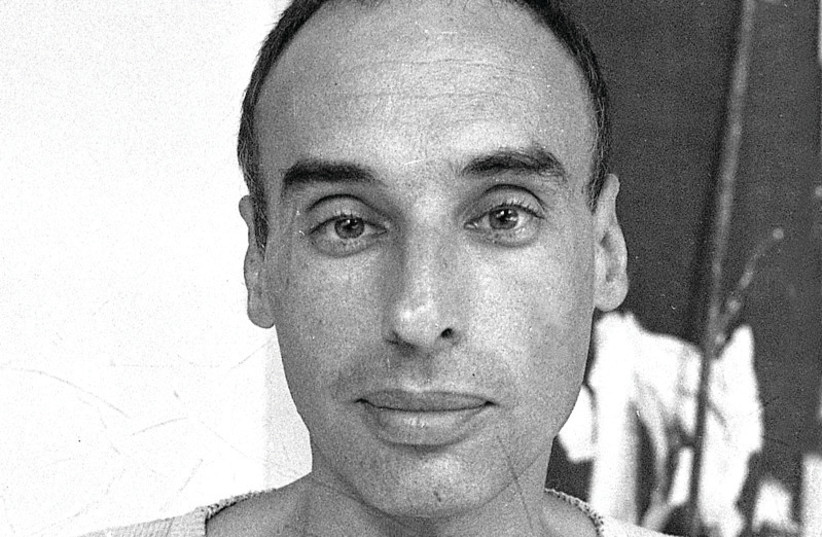The Israeli Opera is set to open the opera season next month with a tribute to playwright Hanoch Levin, who died 24 years ago. The staging of Hanoch Levin – The Opera marks the year of what would have been his 80th birthday.
Libretto editor Ido Ricklin gathered well-known songs and sketches from Levin’s plays to breathe new life into them. Under director Shirit Lee Weiss and composers Yossi Ben Nun, Yonatan Cnaan, Yonatan Keret, Roni Reshef, and David Sebba this production promises a rewarding musical and cultural journey. Each composer was given a particular text to work with, making the new production a collective effort.
The conductor for the entire performance and one of the composers in the tribute, Sebba says that Levin’s direct and at times vulgar texts were not meant for orchestra musicians.
Vulgar texts not meant for the orchestra
“I stood in front of the musicians and asked them to do ‘Big Toches’ from the top,” he told The Jerusalem Post, “it needed some explaining because not all orchestra members were born here and this is a very specific song.”
Taken from Yaacobi and Leidental (1972), “Big Toches” is a confession sung by a woman about her bottom. Its fleshy reality cannot be escaped. Men notice it when she walks and when she sits down to play the piano its weight drags her “to the abyss.” A terrific success that ran for 200 performances, Yaacobi and Leidental was exactly the Levin comedy audiences loved.

Weiss considered the needs of this new production and decided that more was needed. Not only would each existing Levin song or sketch be given new music, it would also get a new visual anchor onstage. Audience members might remember previous performances, but they have never seen these different elements rearranged in such a visually stunning way and performed with such original music scores.
Take “London,” for instance. The singer Chava Alberstein used dialog lines from Levin’s The Suitcase Packers to create, in 1989, a hit song still played on the radio today. The lyrics are a confession by an Israeli woman who knows she is going “to die alone like a bitch.” She decides to leave Israel and go live in London where “television is excellent and people kind” during the time she has left. This description of London is not realistic.
Levin often contrasted Israeli realities with an imaginary West (Paris, Ohio, Texas) to create a comical effect. Sebba took “London” and added church bells to it. Creating the option of linking The Suitcase Packers (1983) to Schitz (1975) with a wedding scene. This sequence was not imagined by Levin and is an original dramatic work Weiss created for this production.
Schitz was an atypical direct criticism of Israeli society, performed after the Yom Kippur War. In his study of Levin, Yitzhak Laor argued that this was one of the rare instances in which Levin took a direct approach and presented the audience with a slice of life as it is. The marriage depicted is a loveless business transaction in a land where hunger for territories and cheap labor cost human flesh. It was a surprising success.
Levin used to describe the theater as a boxing match in which he forces the audience to confront how evil its members are. “Chess,” first performed in the 1968 anti-war cabaret You, Me, and The Next War was originally shown after the Six Day War. A new version of the song will be featured in the upcoming opera production.
You, Me, and the Next War poked a large needle in the hot-air balloon of Israeli military hubris. Because people don’t enjoy being poked with needles, performances were stopped. Angry audience members physically threatened the actors. Theater critics suggested Levin was mentally unsound.
Soprano Yael Levita, lauded for her fantastic 2015 performance in Schitz (an opera adaptation composed by Yoni Rechter) returns to the Levin theatrical world with this production.
Back then, Levita sang the “Chips” aria. In it, she shared she “would love to marry a chip….and belch.” In Levin’s theatrical world, a man is not as useful to a woman as a bag of chips. The aria informed the groom he would never amount to the same status, in her eyes, as junk food.
“It is easier to play a Levin character than one from the 1773 opera Orlando by Handel,” Weiss told the Post. We all know what junk food is, so “Levin is much closer to the world we inhabit,” she added.
“Levin offers us a very non-photogenic mirror,” Sebba said.
Quoting The Child Dreams (adapted to the opera by Gil Shohat) Sebba described a scene where a ship captain tells a mother the unique thing human beings do is “grieve, then eat lunch and visit the toilet.”
The fleshy bottom in Big Toches and the hungry bride in Schitz are Levin’s way of showing us that human beings are unable to experience grand emotions for long. People may watch horrific things on stage, for example, a king and queen sacrificing their citizens like toy soldiers in Chess, then go on to discuss which restaurant to visit and encourage their children to have a meaningful military service.
In the 1993 play Geula (Redemption), a play not included in the source material for this new production, the final scene is a clown who rolls on stage, removes his hat, and says: “Ladies and Gentlemen – The arts!”
“Opera doesn’t only need to present a sterile moralilty,” Sebba quoted opera director Niv Hoffman, “as this doesn’t actually exist in real life either.”
Hanoch Levin – The Opera will premiere on Tues., October 17, at 7:30 p.m. Other performances will take place on Thu., October 19, at 8 p.m. Fri., October 20, at 1 p.m., and Sun., October 22, at 8 p.m. Tickets range from NIS 150-290. Hebrew with English subtitles. Call (03) 692 777 for bookings. The Israeli Opera, 19 Shaul Hamelech St., Tel Aviv.
